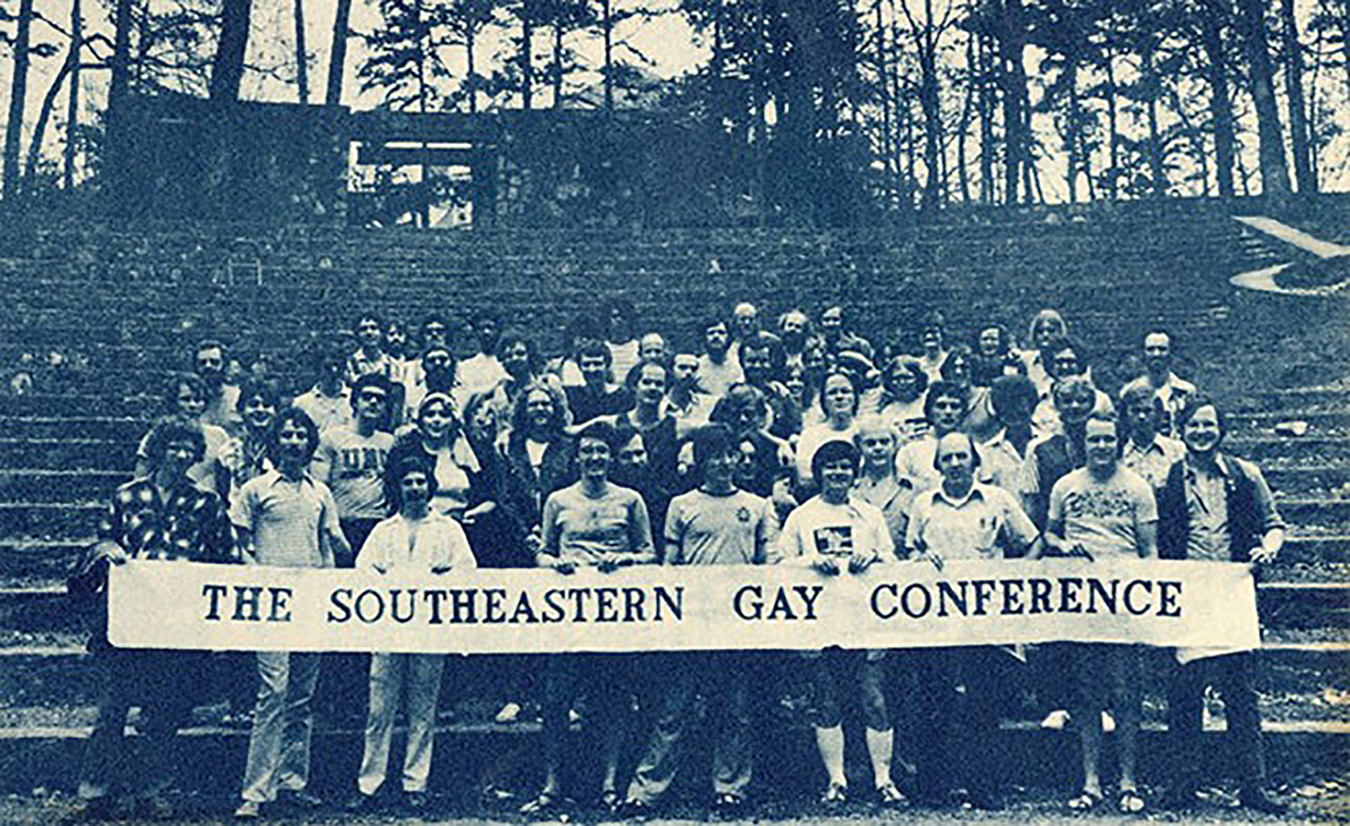For decades, Atlanta has been a city with a notable LGBTQ+ population, numerous queer events, bars, organizations, and communities. The aftermath of the Lonesome Cowboys raid of 1969 sparked a wave of gay activism that led to the city’s first Pride demonstration in 1970, and the first Pride Parade the following year. The city’s first official Black Pride Event was held in 1997. In 2009, Pride was rescheduled from June to October due to heat and to coincide with National Coming Out Day on October 11, something that makes Atlanta’s pride unique (Carlisle, 2020). Atlanta has been host to several LGBT publications including The Barb and Georgia Voice, historic drag bars such as the Armory and Backstreet, and gay bookstores such as Charis Books. Atlanta’s Midtown neighborhood is often referred to as the gay epicenter of the South.
Below you can explore articles and archival collections on Atlanta’s queer history as well as digital projects on drag bars and queer spaces.
Featured Project | Digital Projects | Articles | Further Reading | Teaching Materials
Short Report Prepared by the City of Atlanta, GA

The Atlanta LGBTQ+ Historic Context Statement defines nine historic themes that can be used to better understand the history of Atlanta’s LGBTQ+ places and spaces. These themes provide context on areas of Atlanta history that proved pivotal for the LGBTQ+ communities. From early anti-lesbian and gay state laws, municipal ordinances, and police harassment, to the origins of the city’s LGBTQ+ Rights Movement and growing political activism among its residents; from religion to healthcare; from arts and culture to community life; these themes provide a context for understanding the physical places associated with Atlanta’s LGBTQ+ community.
Collection of interdisciplinary, multimedia publications that explore, trouble, and traverse intersections of queer experiences, past, present, and future.
This project is a self-guided audio tour featuring sites important to queer Atlanta.
This interactive map highlights the Atlanta entries from Bob Damron’s 1960s Address Books. According to Amanda Regan and Eric Gonzaba, these Address Books were resources “published in an era when most states banned same-sex intimacy both in public and private spaces,” and greatly “helped gays (and to a lesser extent lesbians) find bars, cocktail lounges, bookstores, restaurants, bathhouses, cinemas, and cruising grounds that catered to people like themselves.”
Data for this map comes from Mapping the Gay Guides, Amanda Regan and Eric Gonzaba, (2019-): http:// www.mappingthegayguides.org.
Here we’ve gathered resources for teaching queer studies. For further resources on teaching about Atlanta and ideas of how to integrate Atlanta-based projects into your classroom, check out our partners at Teaching Atlanta.